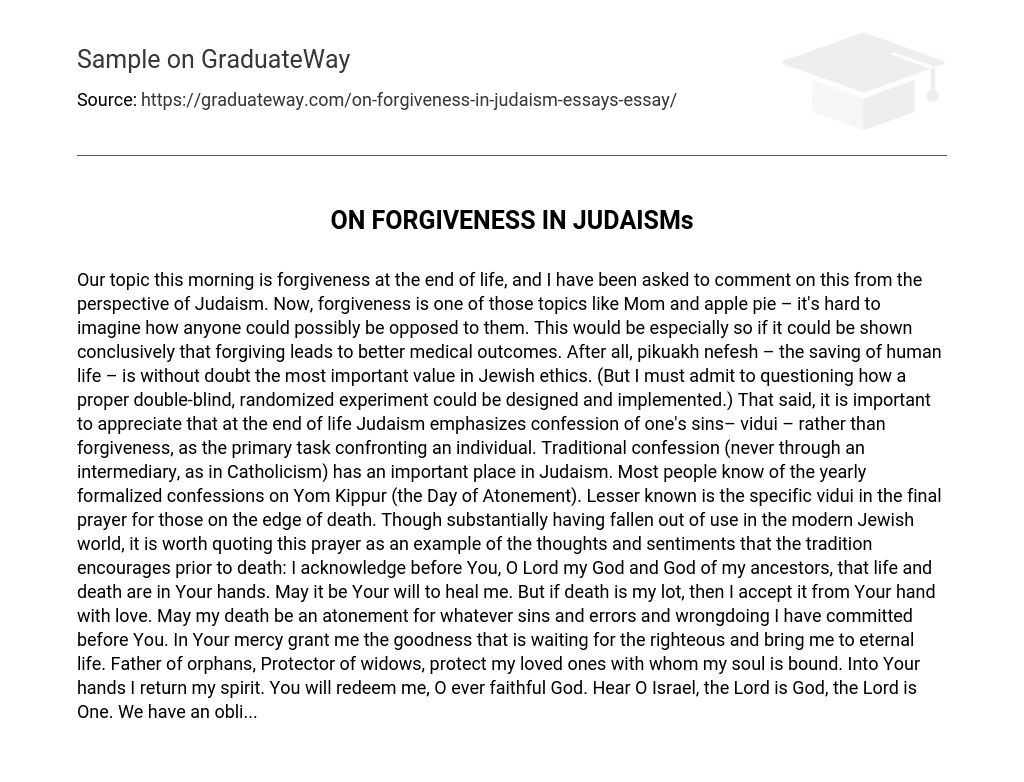Our topic this morning is forgiveness at the end of life, and I have been asked to comment on this from the perspective of Judaism. Now, forgiveness is one of those topics like Mom and apple pie – it's hard to imagine how anyone could possibly be opposed to them. This would be especially so if it could be shown conclusively that forgiving leads to better medical outcomes. After all, pikuakh nefesh – the saving of human life – is without doubt the most important value in Jewish ethics.
(But I must admit to questioning how a proper double-blind, randomized experiment could be designed and implemented.) That said, it is important to appreciate that at the end of life Judaism emphasizes confession of one's sins– vidui – rather than forgiveness, as the primary task confronting an individual. Traditional confession (never through an intermediary, as in Catholicism) has an important place in Judaism. Most people know of the yearly formalized confessions on Yom Kippur (the Day of Atonement). Lesser known is the specific vidui in the final prayer for those on the edge of death.
Though substantially having fallen out of use in the modern Jewish world, it is worth quoting this prayer as an example of the thoughts and sentiments that the tradition encourages prior to death: I acknowledge before You, O Lord my God and God of my ancestors, that life and death are in Your hands. May it be Your will to heal me. But if death is my lot, then I accept it from Your hand with love. May my death be an atonement for whatever sins and errors and wrongdoing I have committed before You.
In Your mercy grant me the goodness that is waiting for the righteous and bring me to eternal life. Father of orphans, Protector of widows, protect my loved ones with whom my soul is bound. Into Your hands I return my spirit. You will redeem me, O ever faithful God. Hear O Israel, the Lord is God, the Lord is One. We have an obli…





